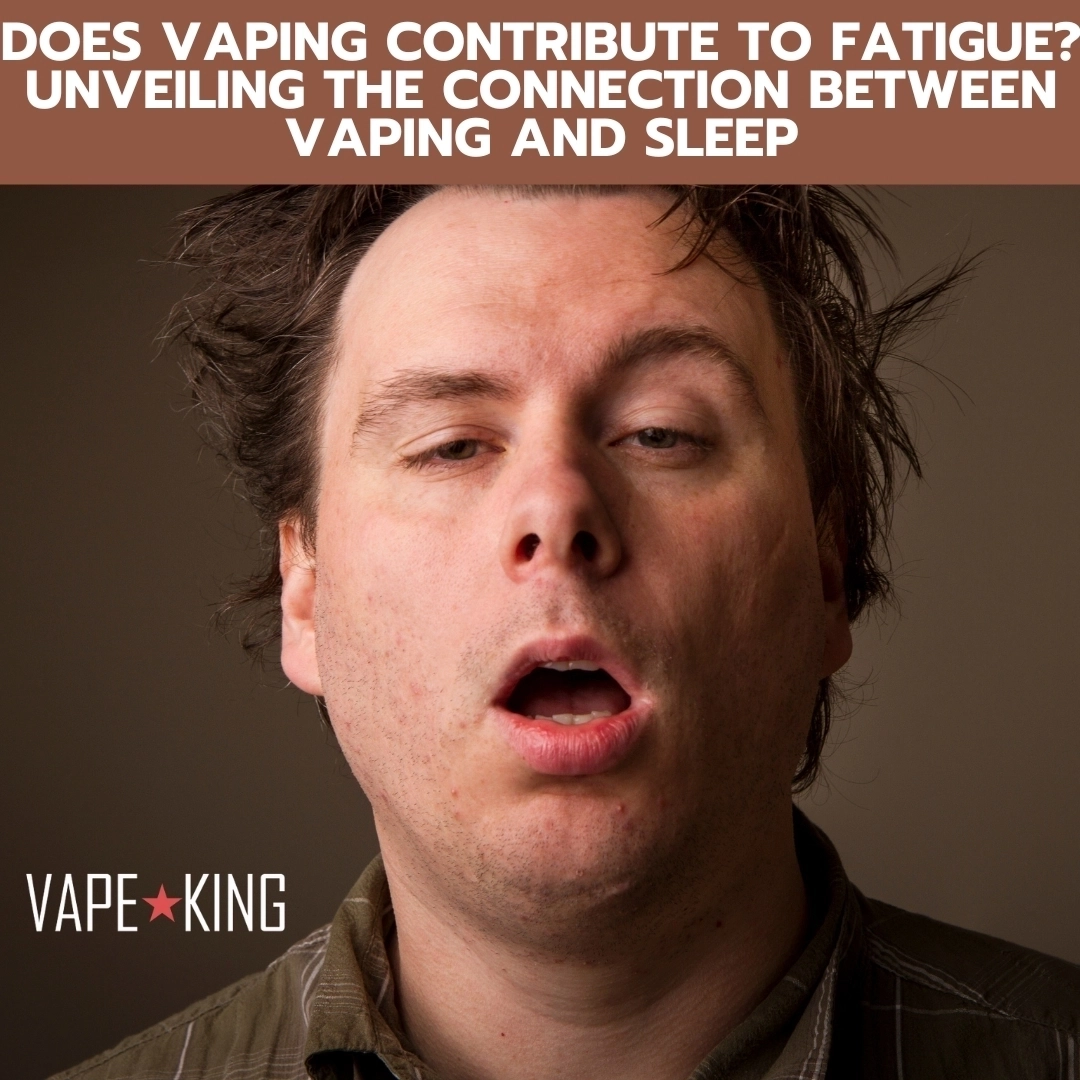Free Shipping on orders R1000 or more!
Does Vaping Contribute to Fatigue? Unveiling the Connection Between Vaping and Sleep

Have you noticed a persistent fatigue since embracing the world of vaping? This article explores the intriguing possibility that while vaping itself doesn't inherently induce tiredness, nicotine – a powerful stimulant present in many vape products – might play a role in altering your sleep patterns. In this exploration, we'll delve into the effects of nicotine on the body, the relationship between vaping and sleep quality, and practical tips for a more energized lifestyle.
Understanding Nicotine's Impact on the Body
Nicotine, a multifaceted molecule, exhibits stimulating properties that significantly affect the body. Focusing on its stimulating attributes, this discussion aims to unravel the potential link between nicotine consumption through vaping and altered sleep patterns.
Why Does Nicotine, a Stimulant, Induce Tiredness?
The paradoxical question arises: If nicotine is renowned for its stimulating effects, why does vaping sometimes lead to fatigue? The answer lies in the intricate relationship between nicotine and sleep quality. While nicotine may provide a wakeful boost during the day, it can negatively impact the Rapid Eye Movement (REM) stage of sleep – a crucial phase for bodily rest and repair.
As a result, the deprivation of REM sleep may contribute to various adverse effects such as anxiety, irritability, difficulty concentrating, and fatigue. In essence, it's not vaping itself causing fatigue; it's the lingering presence of nicotine in your bloodstream during sleep that disrupts the restorative aspects of your rest.
The Duration of Nicotine in Your System
To counteract the potential negative effects of nicotine on sleep quality, it's essential to understand how long nicotine remains in your system. Nicotine boasts a relatively short half-life of two hours. Hence, the key is to minimize nicotine intake sufficiently before bedtime, ensuring the smallest possible amount remains active in your bloodstream during sleep.
Temporary Fatigue in Transition
For those new to vaping, a unique scenario may unfold. Switching from smoking to vaping often results in a substantial reduction in nicotine intake. In the short term, this transition might lead to temporary fatigue. Additionally, vaping, while replacing the nicotine component of cigarettes, doesn't replicate the myriad of other chemicals present in tobacco smoke. This absence might initially make some individuals feel "not quite themselves," but this sensation often subsides within a few days.
Practical Steps for Improved Sleep Quality
If fatigue persists, consider adopting these steps to enhance your sleep quality:
- Gradual Nicotine Reduction:
For those who enjoy vaping before bed, consider gradually transitioning to a blend of nicotine-free and regular e-liquid. This phased approach allows adjustment without sacrificing the enjoyable aspects of your routine. - Nicotine-Free E-Liquid Experiment:
Experiment with nicotine-free e-liquid at least two hours before bedtime to gauge its impact on sleep quality. Adjusting to this blend might lead to more restful nights. - Reducing Nicotine Consumption:
Contemplate the possibility of reducing or eliminating nicotine during the rest of the day. Vaping offers the flexibility to control nicotine strength, allowing for a gradual reduction aligned with individual preferences.
Hydration's Role in Combatting Fatigue
Besides nicotine considerations, dehydration can contribute to fatigue, and vaping may have a dehydrating effect. Always prioritize hydration by drinking ample water while indulging in your vaping routine.
Conclusion
In navigating the intricate relationship between vaping, nicotine, and sleep quality, personalized adjustments play a pivotal role. Whether you're a seasoned vaper or new to the vaping realm, the journey to optimal well-being involves mindful consideration, experimentation, and gradual adaptations. Vape responsibly, prioritize your health, and embark on a rejuvenated path towards improved sleep and vitality.
No posts found
Write a review

